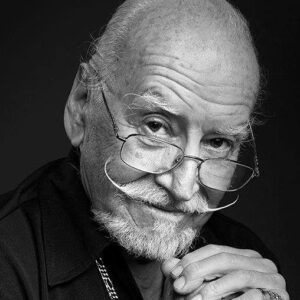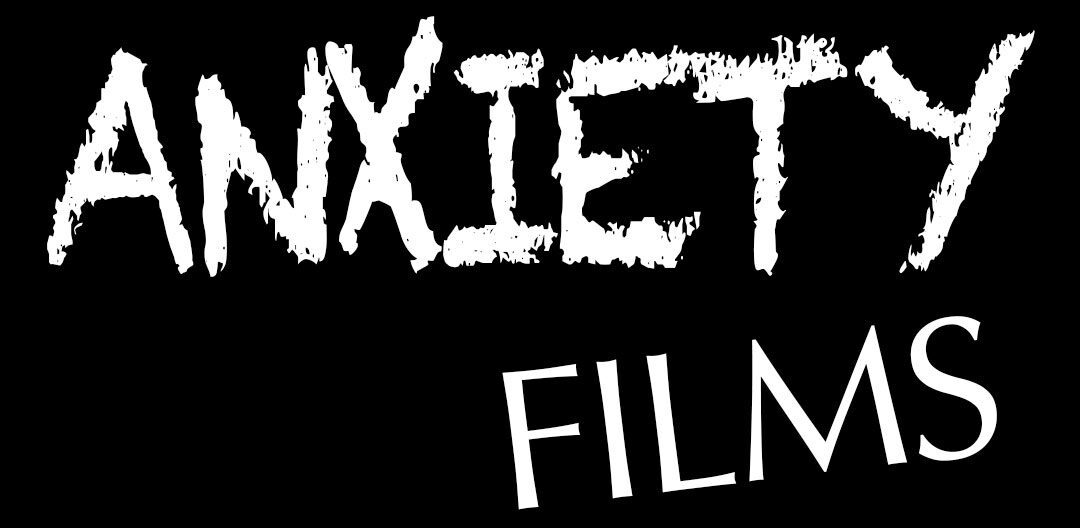
INTERVIEW WITH TED V. MIKELS by Michelle Russo
QM: How old were you when you began working on films?
TVM: How old was I ? Actually, you’ll never believe that I shot and developed still pictures when I was in grade school. My first ‘ movie ‘ was a strip of bed-sheet the my mother cut and sewed into rolls like toilet tissue. I attached these to two broom handles about two feet apart with handles at the top. Then I glued comic strips, like ” O HENRY” DICK TRACY”, etc. across the rolls of bed sheet. I then cut a ‘window’ in a box that only showed the comic strips as they rolled by the window, simulating ‘ movies’ as I would run the strips back and forth past the window by turning the broom handles. A light on the window with the comics passing by gave it the look to a degree of a movie show.
I first did movie film when I was still a teen-ager, playing at first with eight mm, then 16mm, and by 1952, 1953, I was shooting newsreels in Central Oregon for a Portland Oregon TV station. From there, I began making movies with stories, first silent, then ‘talkies”. Remember, we did not have anything automatic then. Had to use light meters for every shot, separate sound recordings, and editing was a bit complicated. No zoom-lenses, etc. After ten years or so of this, and working in some other big movies that came to Oregon, i.e. INDIAN FIGHTER, I made my first 35mm feature as writer, director, producer, editor, that movie was STRIKE ME DEADLY. People tell me it is still timely and that they love it as one of my best. That was 1959, 1960.
QM: What Are and have been your inspirations for being a film maker?
TVM: I think I was inspired to be a film-maker because I was ALWAYS and entertainer. I played accordion solos, blindfolded, wearing gloves, ) did ventriloquism, fire-eating, acrobatics, and MAGIC since I was five years old, always trying to entertain everyone with a two-hour, one-man show. It was a very natural thing to fall into movie-making.
QM: What is your favorite film?
TVM: I don’t think I really have a favorite film. I loved making every one of my own, and have kept so busy and on the run my entire life, I really haven’t spent a lot of time watching other people’s movies. Mine are solely my own creations that way, no outside influences.
QM: How did you become involved with “B-Movies?”
TVM: When I hit Hollywood, making my movies from 1959, and then heavily into production and distribution well into the seventies, there was no ” B ” movie system. Its hard to explain, however I’ll try, as always. When you made a new movie, it had to be good enough to play first run, day and date, opening with everything else that played, and no consideration was made as to cost differentials. Mine were all ” A ” movies, in that when they played a city for the first time, they were always the percentage picture. After it played any city once, the movie then becomes a second feature in that city. That’s where the ” B ” movie came in, it was the lower half of the double bill. Often I played multi-million dollar block-buster movies as the ” B ” part of my movie bill, simply because the same formula applied then, the “big” movie became a second feature or ” B ” movie after it played once. Things have changed so much since then, it’s difficult to help late-comers understand all this.
QM: Where do the ideas for your movies spring from?
TVM: I never had a problem coming up with movie ideas. I once was quoted that I said, “I can come up with a new movie plot every six seconds, as fast as my brain and mouth can get together to spit ’em out. Of course I drew upon a lot of escapist fantasies.

QM: What other filmmakers inspire you and how do they influence your own films?
TVM: I don’t know that I have intentionally allowed myself to be influenced by the works of other film-makers. I have always steered very clear of what everyone else was doing. When motorcycles were hot, I did musical drama (i.e. Girl in Gold Boots) I have for a life-time enjoyed creating visual compositions, which is why I shoot all of my movies for the p ast ten years myself, as cinematographer, without having to convey my feelings to someone else. I am a master of fast effective lighting, and teach it constantly in my seminars.
QM: How has the filmmaking industry changed over the years from an insider’s perspective? And how has this affected yourself and your work?
TVM: The industry has changed so very drastically, there is no real way to compare the old industry to now. Digital effects have become the mainstay, and in some cases, I think over-done. However, as long as audiences express their feeling about what they think is good and what does not appeal to them. all film-makers will try to be innovative and stay ahead of the next guy.
There is really no way to compare budgets to days of old to now. I’ve made MORE MOVIES WITHOUT FINANCING THAN ANY ONE MAN ALIVE. I’m speaking about the principal credits, writer, producer, director, cinematographer, editor, distributor. Many of my movies I put together with pennies, deferments, credit cards, and a great deal of blood, sweat, and tears, including heart-ache. It’s not easy to have to do everything you cannot pay someone else to do. I do start many many people in their first job in making movies however. It runs into thousands going back fifty-some years. The ideal budget is ANYTHING you can get your hands on and feel that you can complete the movie with, if only on your terms and with self-imposed compromises.
I think my style has improved over the years. The movies thirty years ago were much slower moving, without effects, etc. Now, I work at keeping the camera moving with the most INTERESTING shots. Not just unique strange unexplainable angles, but meaningful interpretations of the scene. In any game or business, the more you practice, the better you become. That’s how so many actors and actresses become great, they often get do do movie after movie, sometimes several in a month, and each experience adds to that persons abilities, and propels them sometimes to greatness.

QM: Do you intend for your work to be shocking? Do you incorporate the “Shock” element for a reason?
TVM: I really don’t look for ‘SHOCK ” element as you say, but every movie must have one or more scenes that are remembered long after the movie is seen. That’s why we try to put in something unusual. In WORM-EATERS, I wasn’t looking for shock, having the people putting real live night-crawlers into their mouths, but that’s a scene not easily forgotten. I wrote a script about twenty years ago about white farmers in Africa, and the slaves who worked for them. I called it ” APARTHEID SLAVE WOMEN’S’ JUSTICE.” I made the movie two years ago, I have it available for sale but have not found the way to promote it . What is taking place in Africa at this moment looks like it was all taken from my movie. In it, I, Ted V. Mikels the ACTOR , play a cruel, murderous, evil, rapist, greedy landowner, who refuses to leave his farm and mansion. His wife flees as ordered, leaving behind fancy clothes, jewelry, spike-heeled shoes, for the mistresses and female slaves of the mansion. The military makes the head mistress in charge, told to do whatever she wishes to the evil landowner, who has hanged, shot, burned, raped, and caused 37 people to be trampled to death in a stampede he caused, mostly women and children. The head mistress captures the Landowner, casts him in chains, then has a jury of nine female mistresses and abused slaves try him for his crimes, all of which they say are punishable by death after a lengthy trial, the head Mistress, now ” QUEEN” of the mansion chooses one of four methods for the guilty landowner to die. He is voted to be trampled to death under the heels of jury of females, all wearing his wives clothing and spiked shoes. This is a terribly BLOODY and shocking scene, with the “coup de’grace” something that will never be forgotten easily. That probably is the most shocking scene I have ever filmed, and I was the actor “victim landowner”, as well as the director, producer, writer, cinematographer of over half of the movie, editor, now working to market and distribute it. NOT EASY.
QM: What is your most embarrassing blooper?
TVM: Bloopers are never embarrassing, but always are a source of laughs and fun during filming. That seem to lighten everyone’s mood, and often are not separated from the ‘kept’ shots and scenes, so often are never seen again. Hours and hours of material is created, and there seems not to be a lot of time to explore the use of these ‘bloopers’.
QM: What are your current projects?
TVM: As we speak, I am told that my loan for putting MARK OF THE ASTRO ZOMBIES, and CORPSE GRINDERS TWO as a double-bill into theaters and many remaining Drive-ins is coming through. We have set Oct. 25 as the world premiere of MARK OF THE ASTRO ZOMBIES in BOSTON. Then as spring nears, and our sales campaign develops, we’ll begin spot-play-dates across the country.
Simultaneously with that loan is financing for my next movie, a sort of ‘return of the Doll Squad’ that I am calling DOLL SQUAD 2. Right behind that is LAS VEGAS HEAD COUNT, a comedy caper. THEN We’ll be entering preparations for my BIGGIE, ” BEOWULF'”, my life’s desire, the epic of all time. Meanwhile, I’ll continue my lectures, personal appearances world-wide, including Australia in November this year, 2002, and my seminars, which I hold in my studios, for a HANDS-ON experience here in Las Vegas, Nevada.
